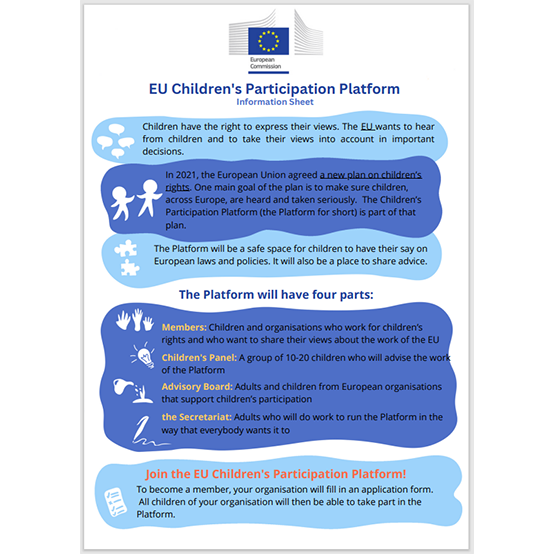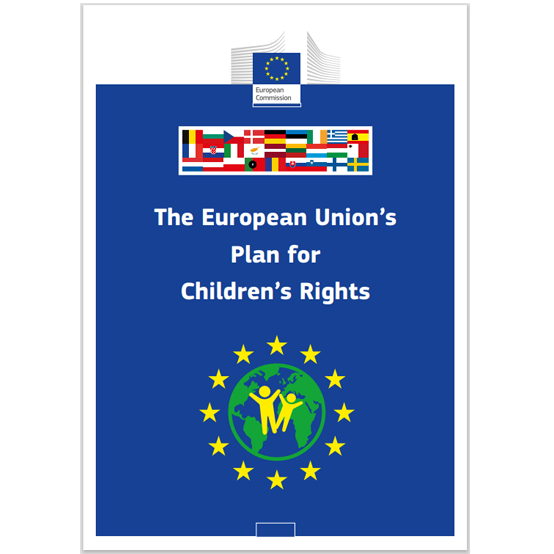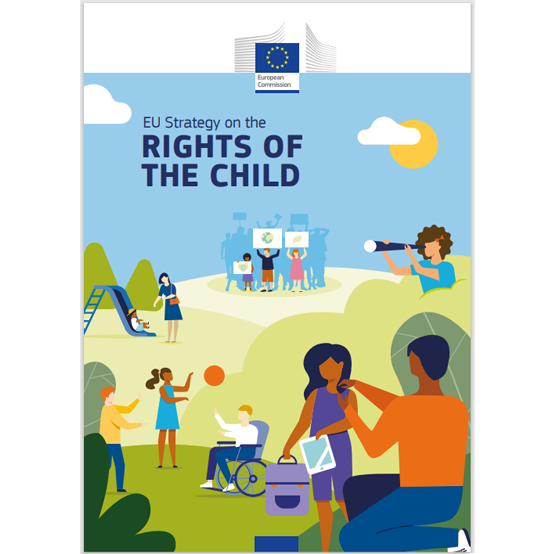Every child has something valuable to contribute and their perspectives should be taken into account when making decisions that can impact their lives.
On this page you will find the views and opinions that children are sharing with EU-decision makers on different topics. Adding their voices to help build Europe's future.

Some adults think that their opinion is the one that is correct, and they don’t listen nor respect what we are saying.
Children’s priorities and concerns
Our General Assembly in June 2023 offered a great opportunity for children and teenagers to meet and discuss a set of topics which are important to them. This included children's rights, greener Europe, protection from violence, and child poverty.
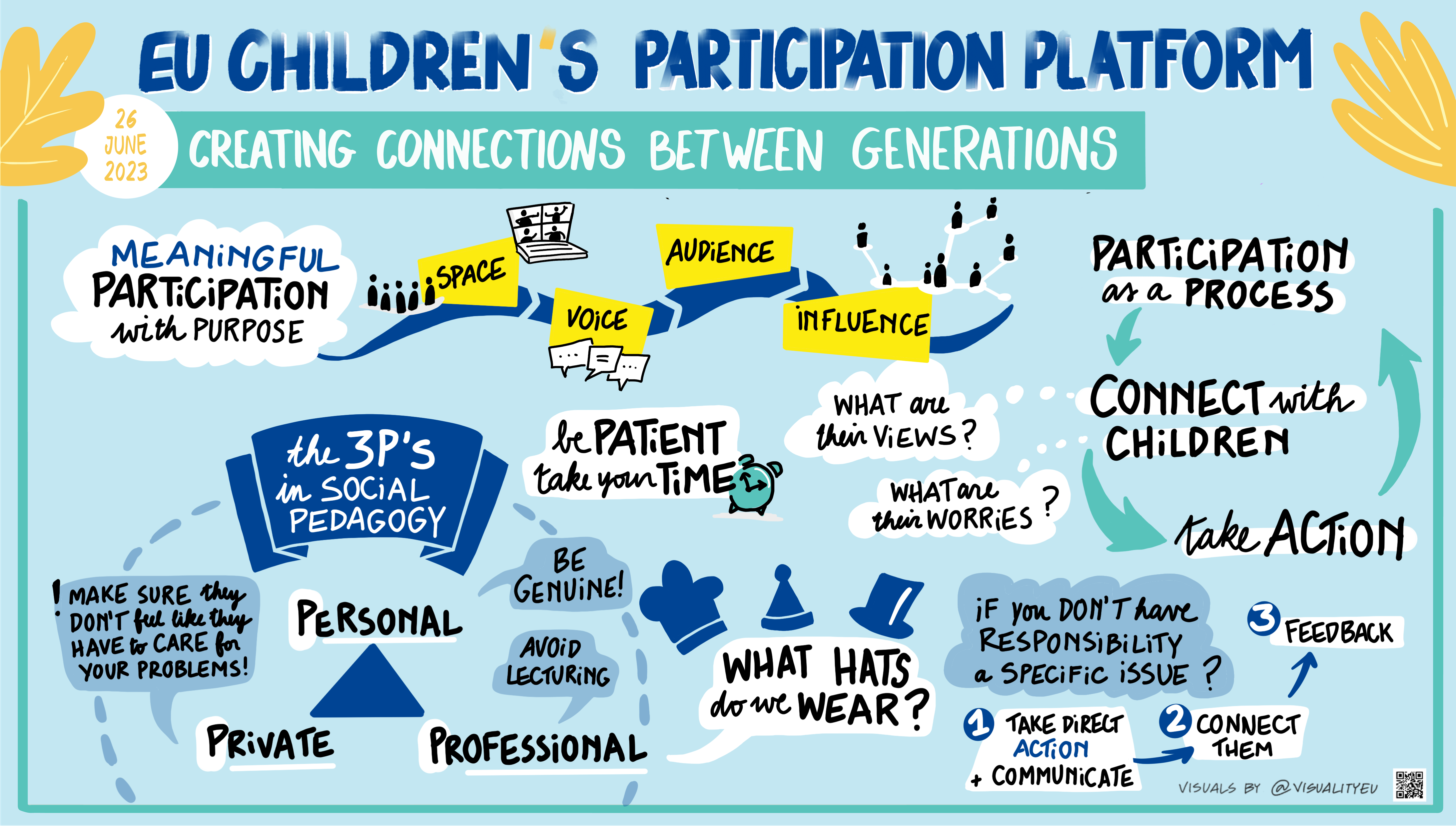

Creating connections between generationsCreating connections between generations 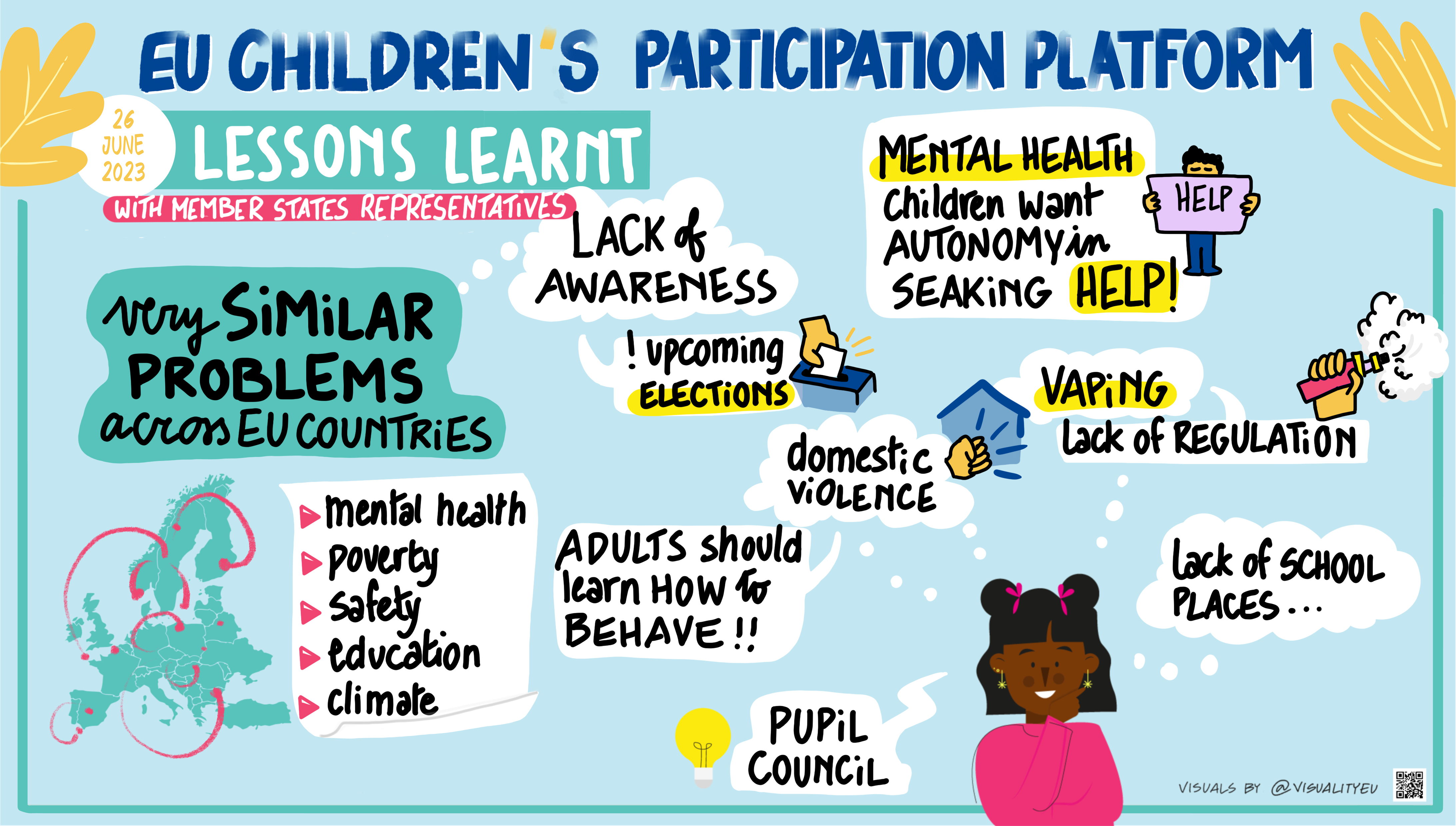

Lessons learnt 1Lessons learnt 1 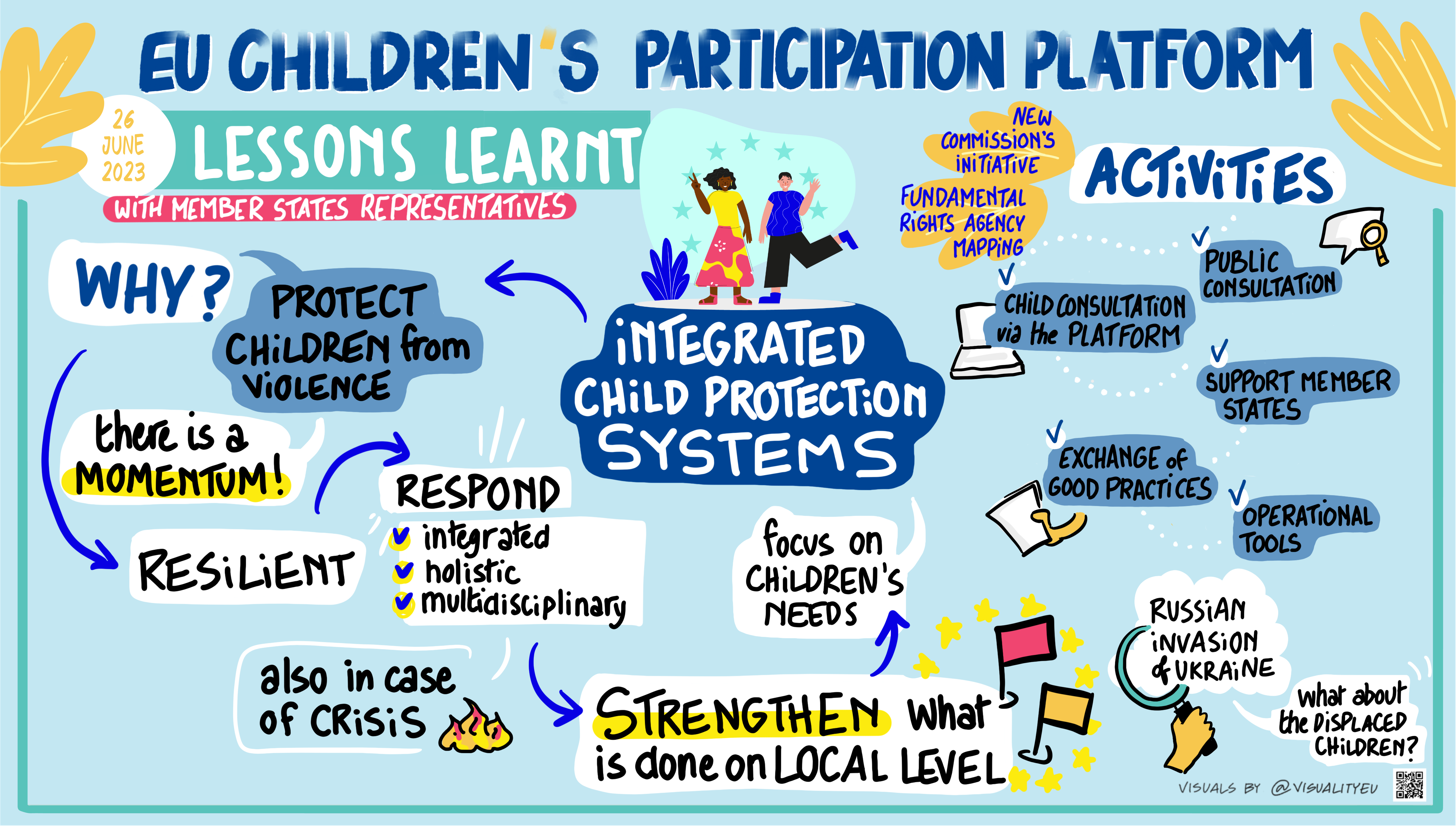

Lessons learnt 2Lessons learnt 2 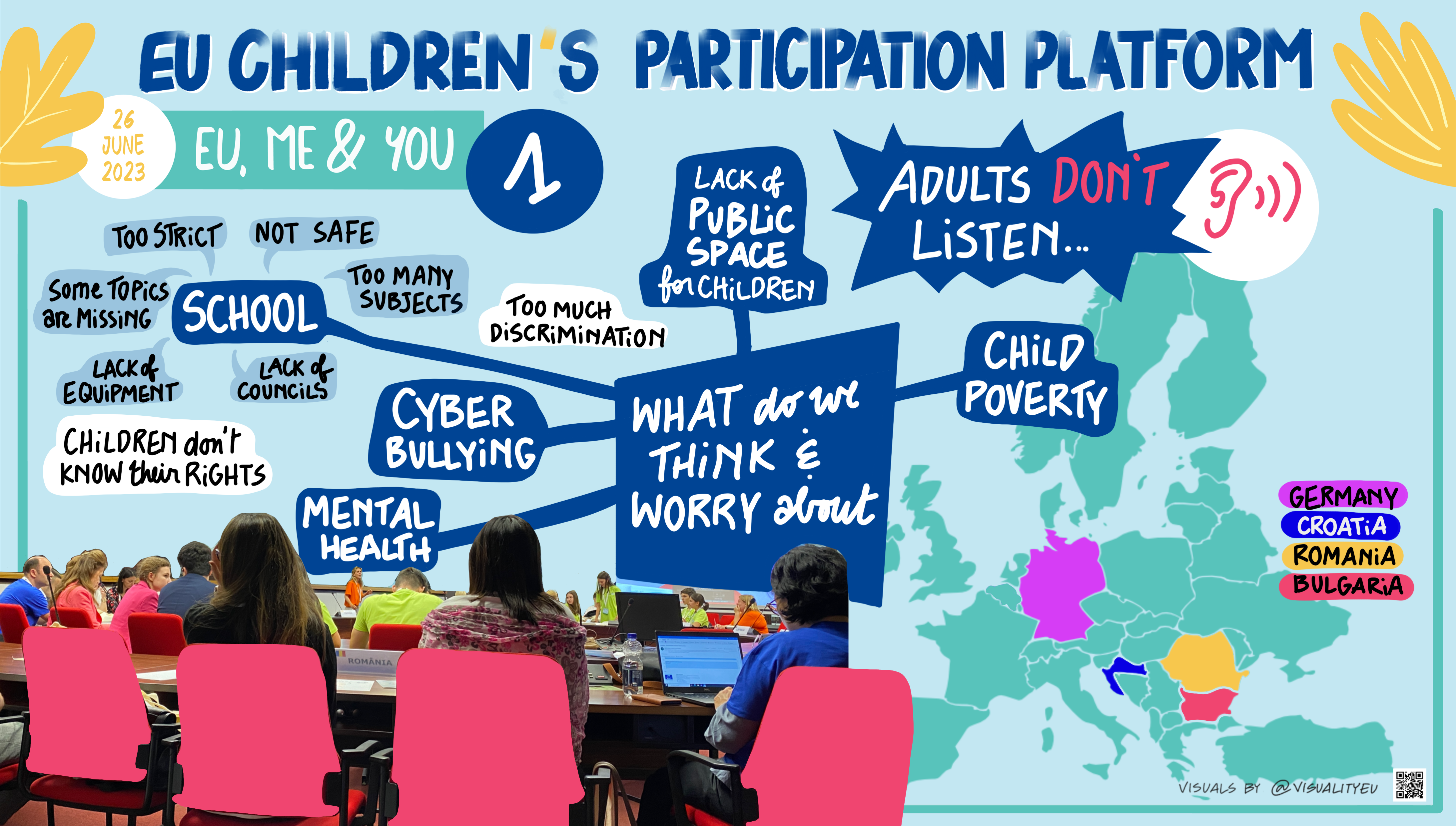

What the EU should know from children What the EU should know from children 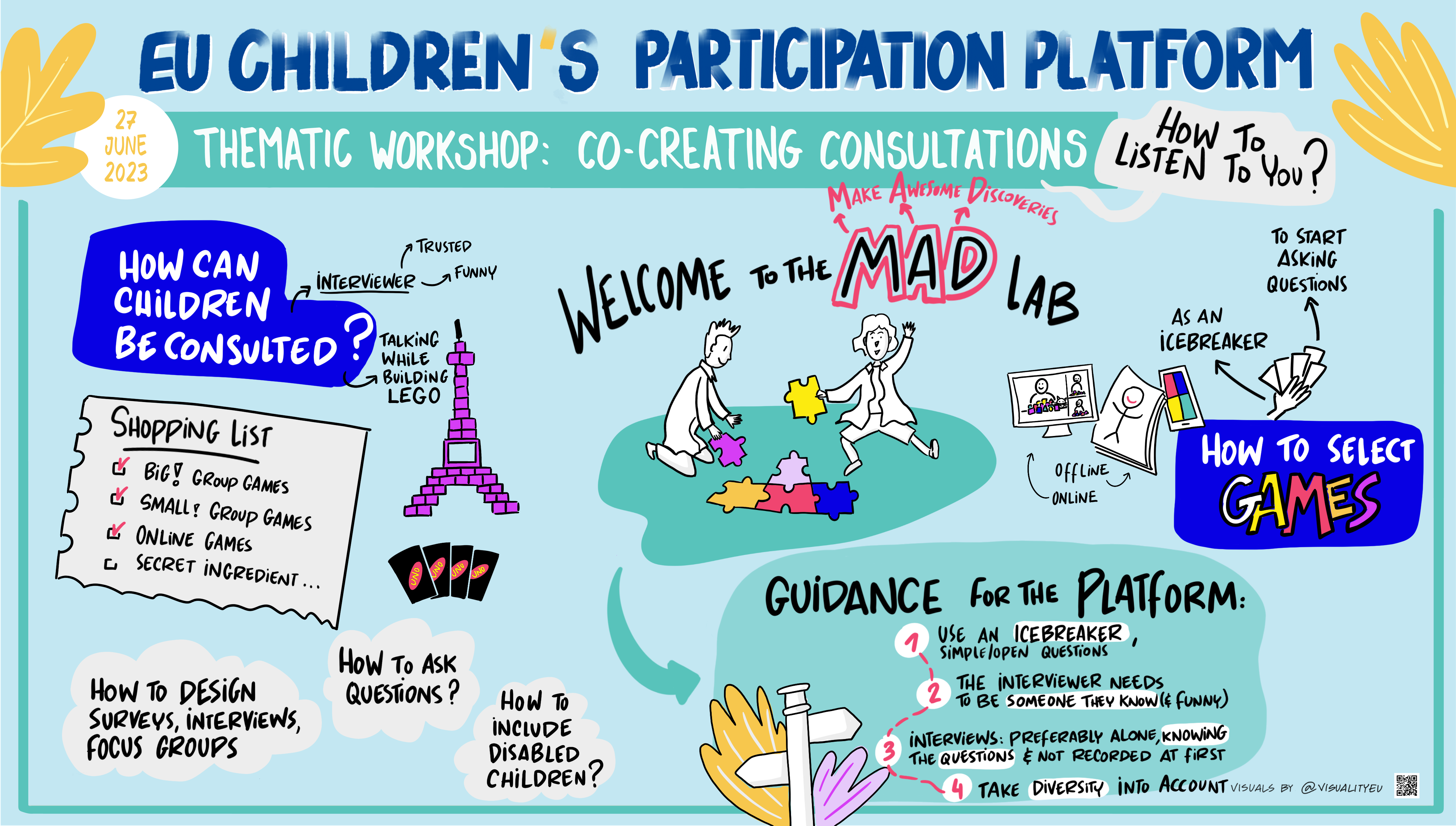

Co-creating consultations for children Co-creating consultations for children 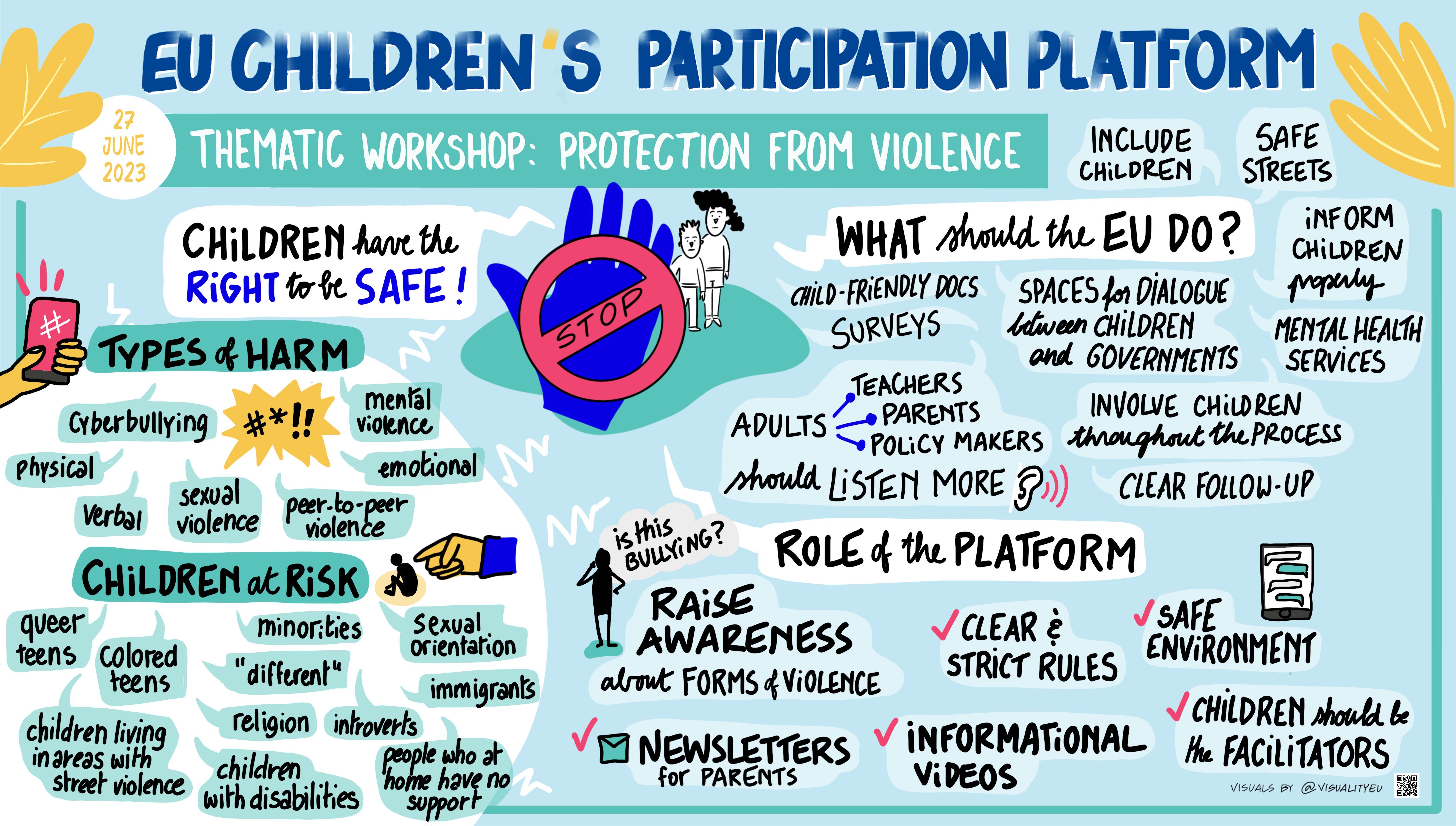

Thematic workshop outcomes Thematic workshop outcomes 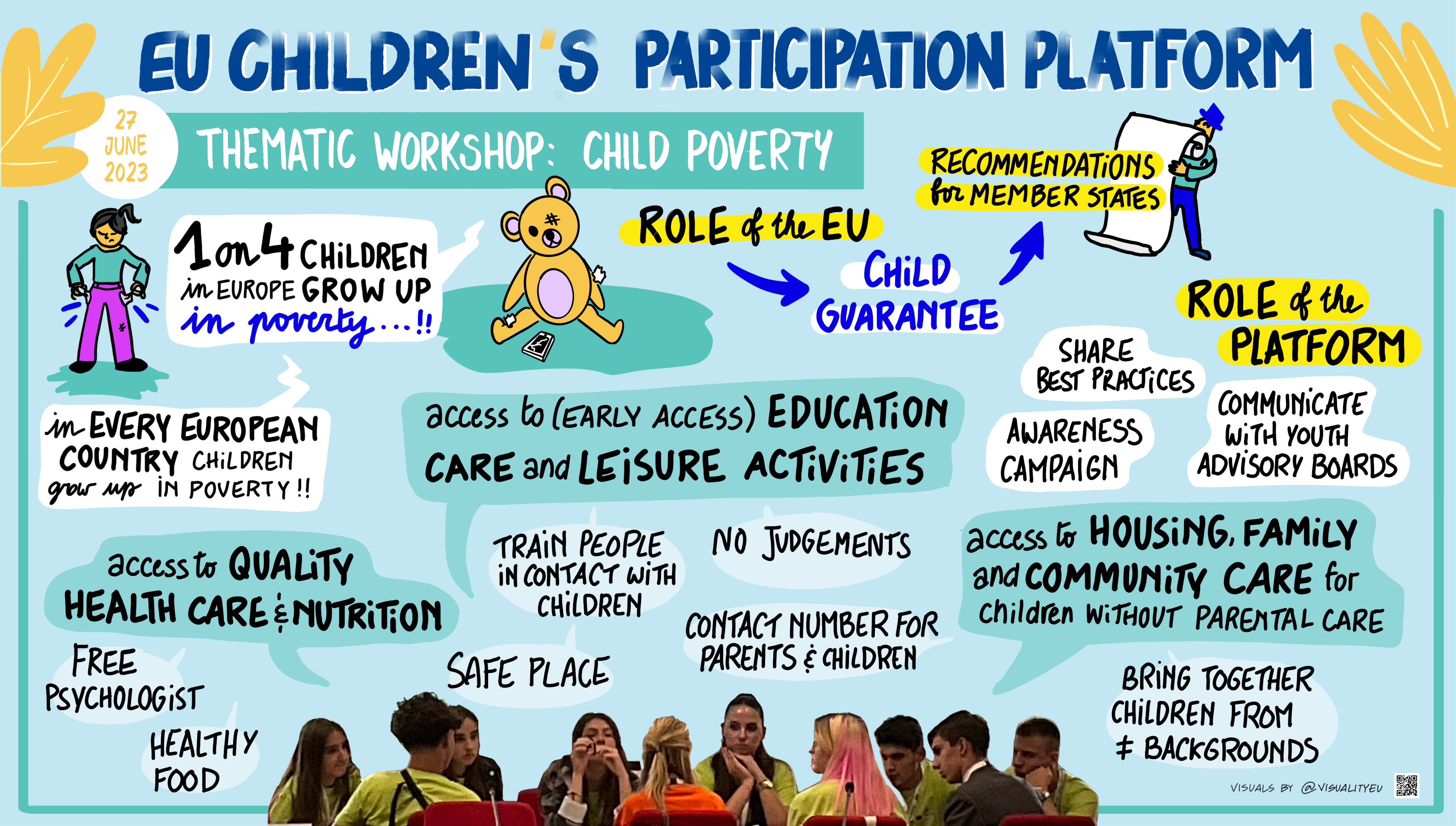

Child povertyChild poverty 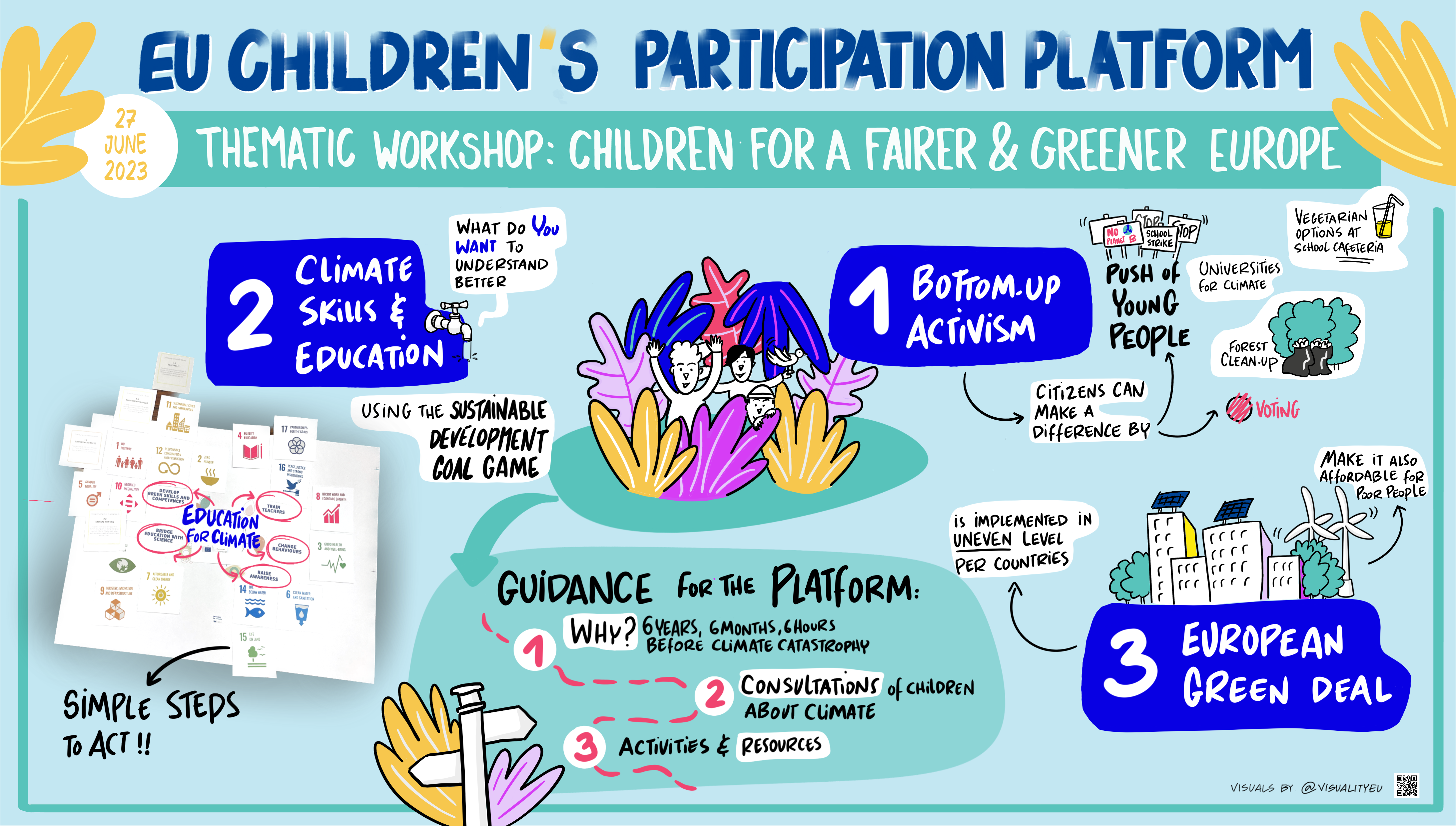

Workshop: children for a fairer and greener Europe Workshop: children for a fairer and greener Europe 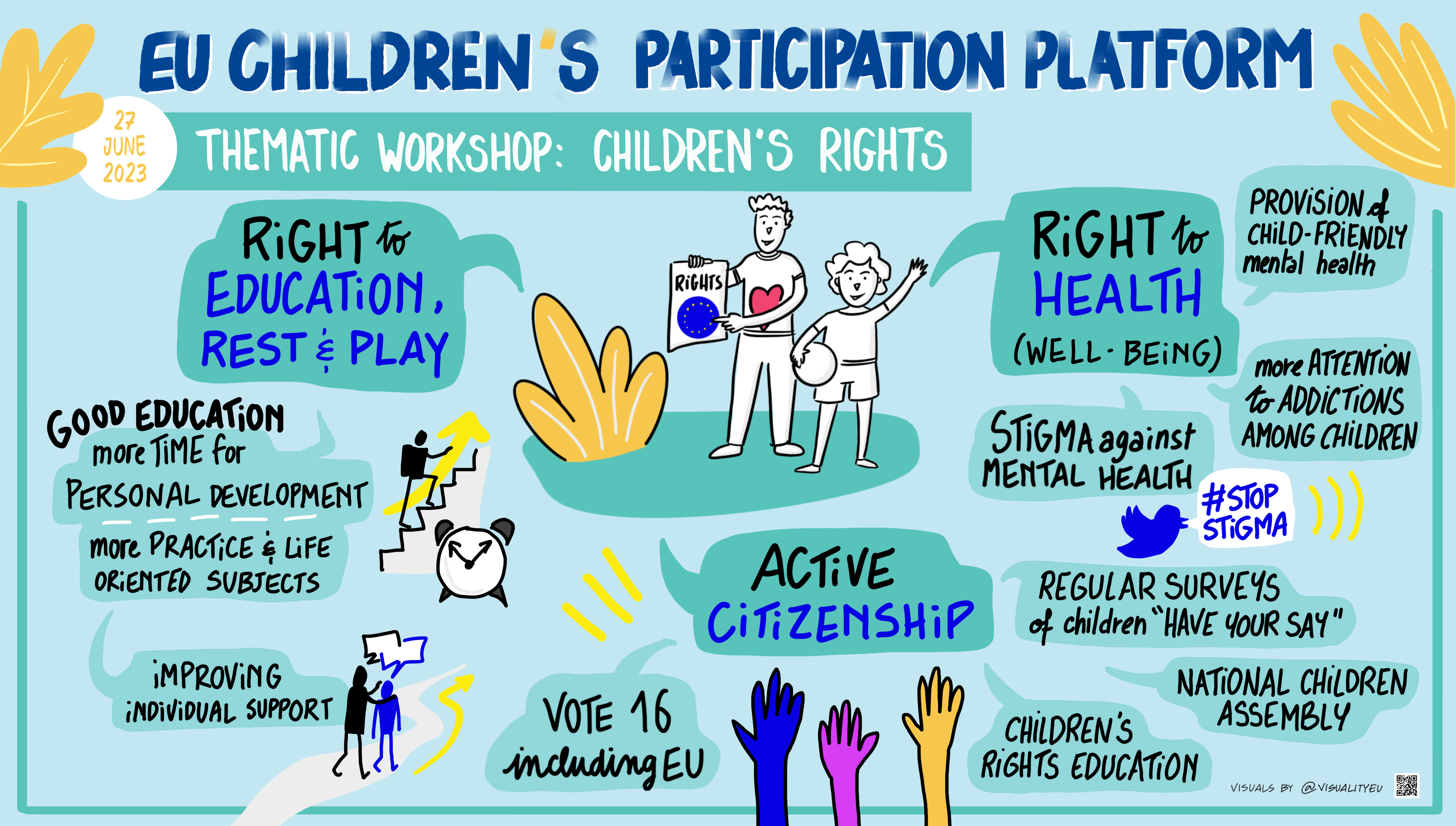

Workshop: Children rightsWorkshop: Children rights
Children’s input to the EU rights of the child strategy
Over 10,000 Europeans aged 11-17 outlined what matters to them in two surveys: Our Europe, Our Rights, Our Future and The Europe Kids Want .
Here are five top priorities for the European Union regarding children:
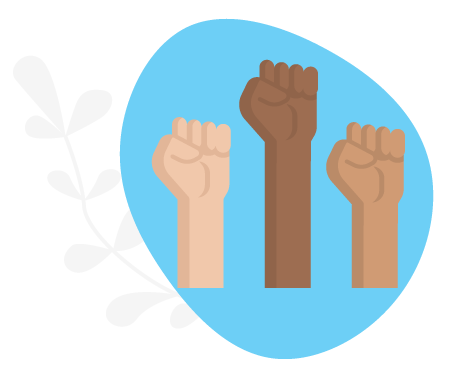 That all children are treated in the same way, even if they are different
That all children are treated in the same way, even if they are differentOne in three children in the EU have experienced some form of differential treatment. The most frequently mentioned: appearance, gender, school results, sexual orientation, and mental health problems.
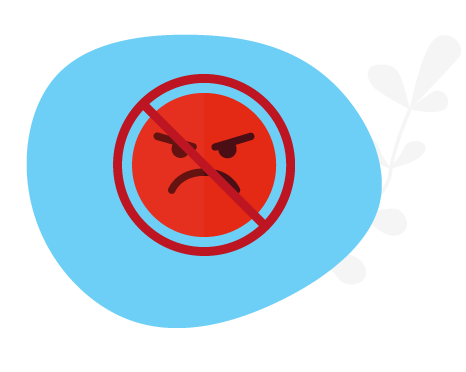 All children are free from violence in whatever form
All children are free from violence in whatever formMany children expressed their frustration over lack of action on preventing bullying in school. Children and young people are also worried about online bullying.
 All children can go to school
All children can go to schoolAlmost a third of students say that they face some cost-related barriers to education. Such as school trips, books, school meals, and also access to transport and after-school activities.
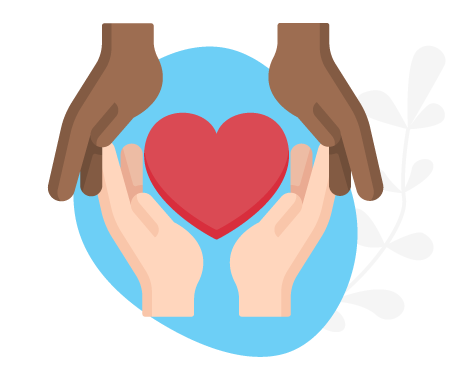 That children can grow up in their family or by someone who takes care of them in a loving environment
That children can grow up in their family or by someone who takes care of them in a loving environmentThis is a subject of concern for over half of the children from EU countries. Almost 1 in 10 children also identifies as suffering from mental health problems or symptoms such as depression or anxiety.
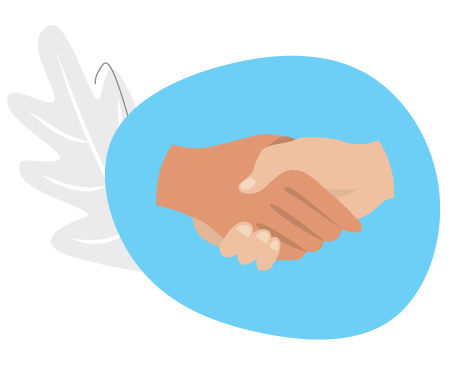 My opinions being considered by politicians when they take decisions that affect me
My opinions being considered by politicians when they take decisions that affect meTwo thirds of the children were unhappy with the way cities or towns engage with them. Almost half felt they were never listened to by decision makers in their city or town
Source: Our Europe, Our Rights, Our Future; The Europe Kids Want, page 84
Children's views were included in the European Union's plan to ensure that children have a happy and healthy life (called the EU Strategy on the Rights of the Child). In 2023, the team who worked on the plan won a special EU prize for including children' opinions, and for making a plan which is easier for children and teenagers to understand.
Based on what children said, a very important part of this plan is children’s right to participate in EU policymaking.
Through their work programme which is decided together with children, the EU Children's Participation Platform will help to ensure more children's opinions are heard. And that their voices are amplified and shared with EU decision makers and EU countries.
More information on what the EU is doing for children's rights:
The EU Children’s Participation Platform brings together children, teenagers, organisations and interested adults across Europe to:
- Help children learn about how to voice their concerns
- Help adults on the ways to listen and put children’s interests into action
- Raise children’s voices so that even more children can have a say in their future
- Provide opportunities for children be part of the decision-making
The Platform team includes a Children’s Panel to help organise some of the activities, review documents and make sure that what we do is fits well with children.
Through discussions, surveys, exchanges and meetings, we will hear what children want on different subjects, such as child safety, education or mental health issues.
Some activities will be for members, but many will be for all European children and teenagers under the age of 18.
Other activities may be for different age or language groups. But activities on the most important subjects will be in all EU languages, so that everyone can join in.
Documents for and by children
Sometimes the information given by adults is a bit complicated or boring for children. Part of our work is to share and help create documents and information which are more interesting for children and teens.
These three documents, which explain more about children’s rights and participation, have been written together with children.

